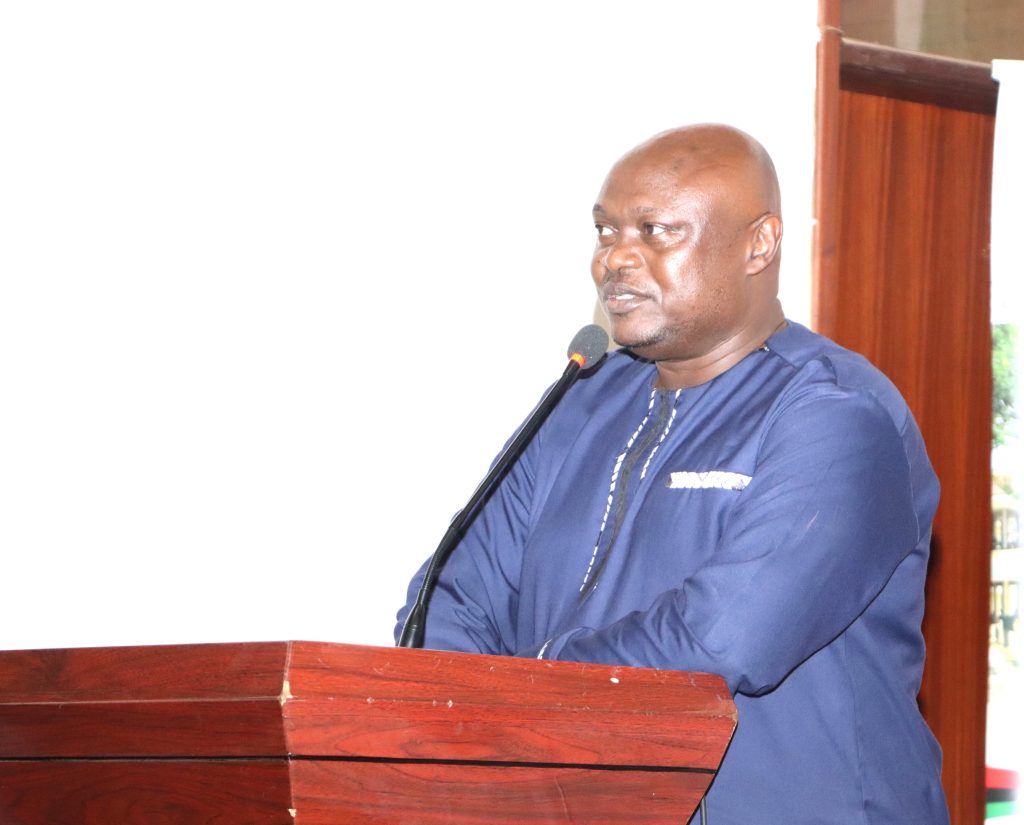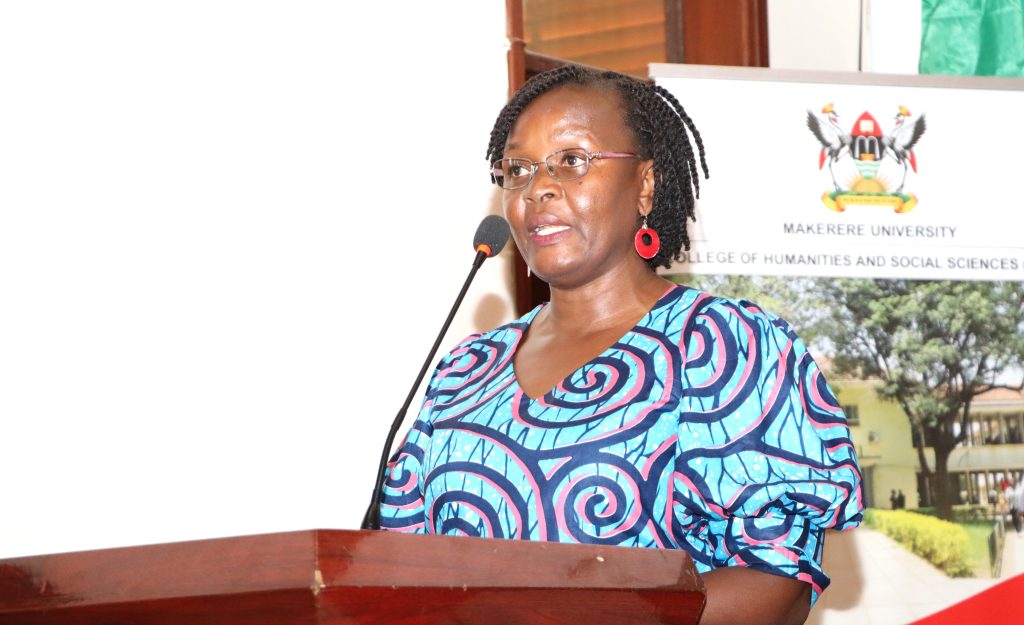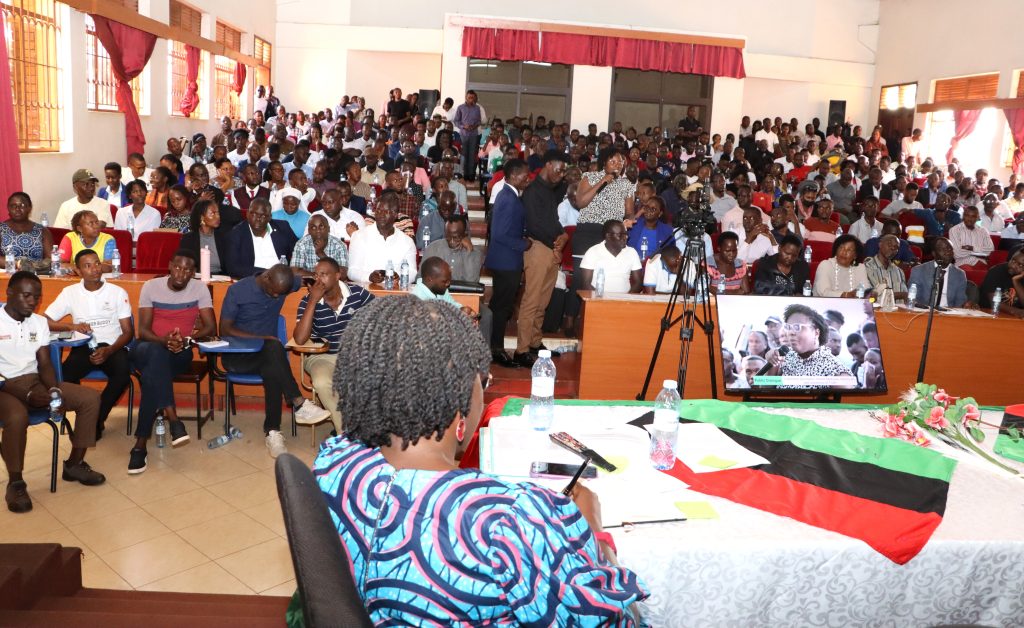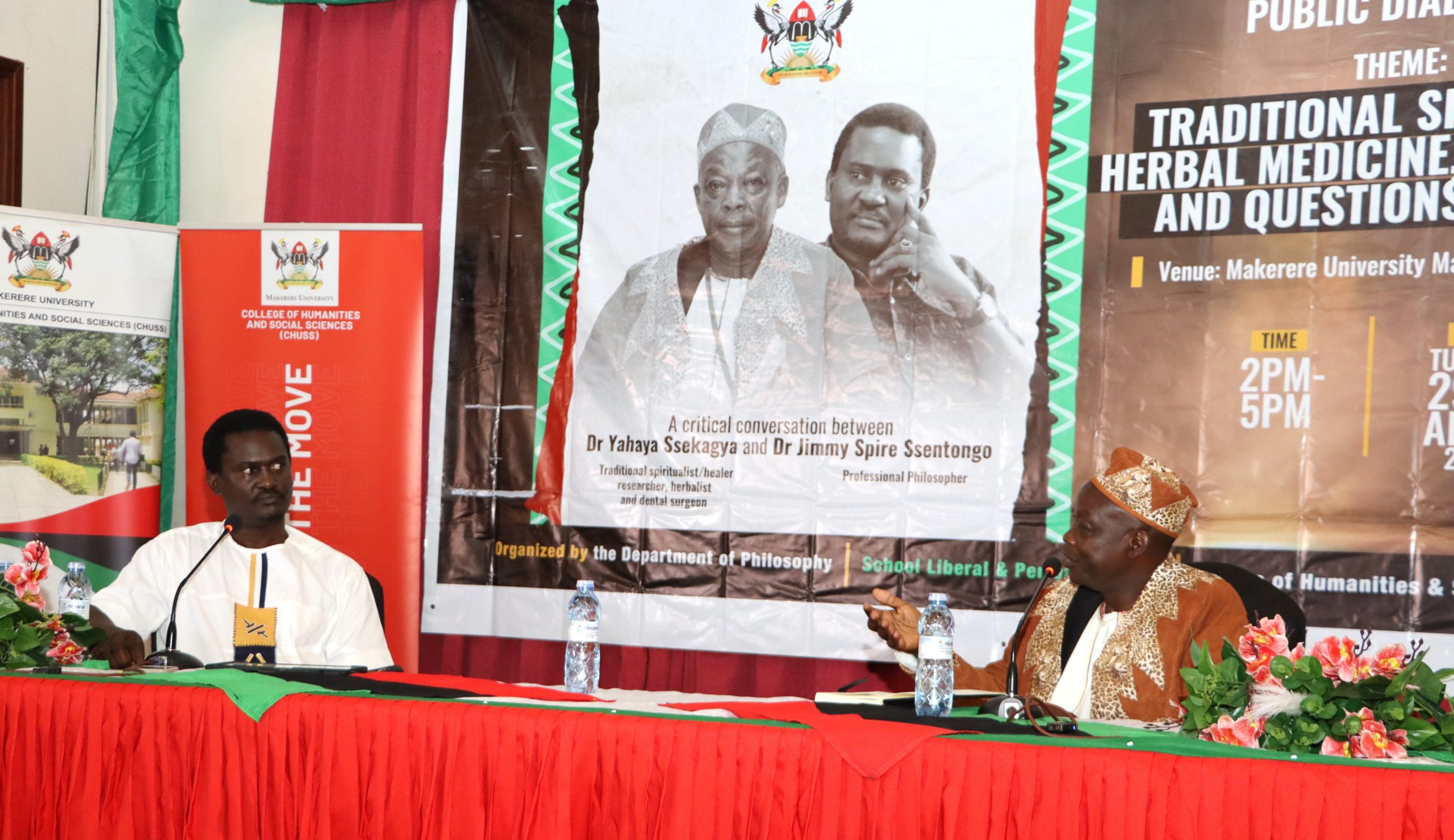One of the Most Impactful Symposiums at Makerere: Deputy Principal Applauds Courageous Dialogue Bridging Humanities and Science
Using a metaphor from astrophysics, Prof. Awich likened human understanding to the work of space telescopes like Hubble, which, despite operating for decades, can only capture a fraction of the vast cosmos.
“Even what the telescope is showing us is less than 1% of what’s out there,” he remarked. “That tells you how little we know—and how much more there is to question, explore, and understand.”
He also offered warm praise to Dr. Sentongo, whose public image as a cartoonist and columnist is matched by a deeply intellectual and humble personal presence. Sentongo, he revealed, is preparing to exhibit new creative work that continues this exploration of truth and identity.

The deputy principal applauded the panelists and especially Dr. Christine Mbabazi Mpyangu, the symposium’s moderator from the Department of Religion and Peace Studies, for guiding the complex conversation with clarity and balance. He described her selection as the “best choice that could ever happen for this symposium.”
Prof. Awich also emphasized how the themes of the day—truth, spirituality, medicine, and the decolonisation of knowledge—are not merely academic curiosities but essential areas of inquiry for understanding African identity, history, and global positioning.
“This is very good for our students,” he said. “It’s humbling, and it’s intellectually nourishing. I have been deeply moved and educated by this dialogue.”
He closed by inviting all participants to “watch this space” for future dialogues that will continue to push intellectual boundaries and make CHUSS a cornerstone of Makerere’s global thought leadership.
“Thank you again for coming. Whether you were here physically or joined us online, we are grateful. And I promise, this is just the beginning.”
A Bold Dialogue on Truth, Decolonisation, and African Knowledge Systems
Dr. Pamela Khanakwa, Dean of the School of Liberal and Performing Arts at Makerere University, called on scholars, students, and the wider public to embrace African epistemologies, challenge colonial legacies, and confront entrenched biases in the understanding of truth and science.
“Why should we fear these conversations?” Dr. Khanakwa asked. “Our dialogue today seeks to interrogate the little understood and often blurred lines between traditional African spirituality, herbal medicine, and witchcraft.”

The she said formed part of Makerere’s broader initiative to decolonise education and expand the frontiers of knowledge by re-examining the role and validity of indigenous African practices in modern society and a reclamation of African intellectual space
Khanakwa’s address was not merely ceremonial; it was a scholarly critique of how colonial regimes distorted African worldviews and knowledge systems, relegating them to the margins of legitimacy.
“What was African—our indigenous knowledge—was labelled barbaric, primitive, demonic, evil,” she said. “Meanwhile, Western belief systems, especially biomedicine, were centralized as the standard of progress and truth.”
She pointed to laws like Uganda’s Witchcraft Act of 1957 and Zimbabwe’s Witchcraft Suppression Act of 1899 as colonial tools used to criminalize African religious and healing practices, reinforcing the hierarchy between Western science and African spirituality.
These laws, she noted, continue to influence public policy and education, often excluding or diminishing traditional healing and metaphysical systems that millions on the continent continue to rely on.
Blurring the Line Between Science and Spirituality
Dr. Khanakwa challenged the false dichotomy between science and non-science, noting that many African healing practices dismissed as superstition may simply be sciences that remain understudied or misunderstood.
“How about if what we consider witchcraft is actually science which has not yet been unlocked?” she asked, raising the example of traditional bone-setters who reportedly mend fractures remotely—an observation met with nods and murmurs of agreement from the audience.

She also referenced the lingering stigma within academic institutions, sharing a conversation with a colleague in veterinary sciences who was wary of interacting with social scientists because of perceived connections to witchcraft.
“This fear and ridicule are rooted not in reason, but in the colonial devaluation of African knowledge,” Khanakwa explained and called for critical appraisal, not blind reverence.
While deeply rooted in the cultural reclamation agenda, Khanakwa emphasized that the event was not a platform for blind celebration of all traditional practices. Rather, it was a space for critical epistemic appraisal—an honest, analytical exploration of what constitutes truth, and who gets to define it.
“We are not just here to romanticize indigenous knowledge,” she said. “We are here to examine it rigorously, question the boundaries, and reclaim intellectual agency.”
She framed the dialogue as both an academic and civic responsibility, rooted in the liberal arts tradition of open-minded inquiry and debate- a knowledge without borders
In a nod to African communalism, Dr. Khanakwa closed her remarks with an invitation to inclusivity and collective growth:
“In an African house, there is always space for one more. You cannot lock someone out in the rain because you say the house is full.”
The spirit of intellectual hospitality, she argued, must extend to epistemological spaces—where truth is not confined to laboratories or lecture halls in the Global North, but also resides in shrines, herbs, rituals, and oral traditions passed down through generations.
As she welcomed the day’s speakers, Khanakwa reiterated Makerere University’s commitment to being more than an academic institution: a site of African self-discovery, healing, and intellectual sovereignty.

